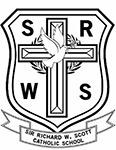As a school council member, you can help your council discover new and exciting ways to contribute to the education of students in your school. Education is a partnership involving parents, students, teachers, principals, school boards, government, and the community. Your involvement in the council gives you the opportunity to strengthen that partnership, and to be part of a dedicated team working to ensure a high quality of education and an accountable education system for the children of Ontario. Your participation can make a difference!
Ideally, the membership of the school council will reflect the diversity of its school community. Parents and guardians must form the majority of members on the council.
School Councils
Effective school councils are those that:
- focus on student learning and the best interests of all students;
- are actively involved in setting school priorities for improving student achievement;
- promote meaningful parental and community involvement and actively seek the views of their school communities;
- have a clear understanding of their roles and responsibilities;
- include members who represent the diverse views of their school communities;
- keep well informed about school and board policies and procedures;
- have clear and consistent processes for decision-making;
- communicate with the community about their activities;
- maintain high ethical standards;
- have members who have developed mutual trust and respect for one another.
The Chair/Co-Chairs
The chair/co-chairs of the council are elected by the council members and must be a parent or parents who are not employed by the school board. The chair/co-chairs are voting members who, in addition to performing the same duties as other council members, might:
- arrange for meetings;
- prepare agendas;
- chair council meetings;
- ensure that minutes of council meetings are recorded and maintained;
- facilitate the resolution of conflict;
- participate as ex-officio members of all committees established by the school council;
- communicate with the school principal on behalf of the council.
Parent Representatives
Parent representatives are voting members who:
- participate on any committees established by the school council;
- contribute to the discussions of the school council;
- solicit the views of other parents and members of the community to share with the school council;
- observe the council’s code of ethics and established bylaws.
Objectives for school councils
- To place the overall interests of students first
- To advise the principal and where appropriate, the Board
- To help parents and partners share responsibility for student success
- To enhance parent, parish, and community involvement
- To promote effective relationships among home, school, parish, and community
- To provide a forum for discussions on school success
- To help parents, parish, and community members share their views
- To promote positive attitudes towards Catholic education
Characteristics of Effective School Councils
- Focus on student learning and the best interests of all students are actively involved in setting school priorities for improving student achievement
- Promote meaningful parental, parish, and community involvement and actively seek the views of their school communities
- Have a clear understanding of their roles and responsibilities
- Include members who represent the diverse views of their school communities
- Keep well informed about school and board policies and procedures
- Have clear and consistent processes for decision making
- Communicate with the community about their activities
- Maintain high ethical standards
- Have members who have developed mutual trust and respect for one another
